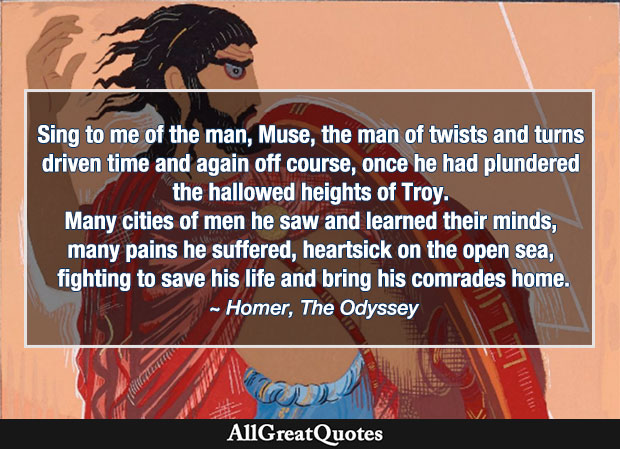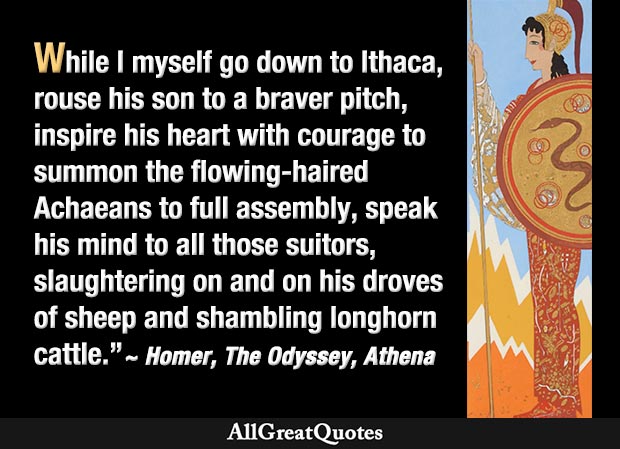"Ajax, now, went down with his long-oared fleet.
First Poseidon drove him onto the cliffs of Gyrae,
looming cliffs, then saved him from the breakers
he’d have escaped his doom, too, despite Athena’s hate,
if he hadn’t flung that brazen boast, the mad blind fool.
‘In the teeth of the gods,’ he bragged, ‘I have escaped
the ocean’s sheer abyss!’ Poseidon heard that frantic vaunt
and the god grasped his trident in both his massive hands
and struck the Gyraean headland, hacked the rock in two,
and the giant stump stood fast but the jagged spur
where Ajax perched at first, the raving madman –
toppling into the sea, it plunged him down, down
in the vast, seething depths. And so he died,
having drunk his fill of brine."
– Homer
The Odyssey, Book 4, lines 560-573. Proteus the sea god and seer speaks to Menelaus about the death of Little Ajax (also known as Ajax the Lesser). We hear how Ajax was doomed by his excessive pride. He angered Poseidon with his boast "in the teeth of the gods…I have escaped the ocean’s sheer abyss." So the god of the sea drowned him for his hubris. Proteus’ story refers to Little Ajax, son of Oileus, not to be confused with Telamon’s son, Great Ajax, who killed himself after the fall of Troy. The story goes that Little Ajax tried to rape King Priam’s daughter Cassandra in the temple of Athena, where she took refuge. When the Achaeans failed to punish him, Athena had wind storms blow him off course on his way home. Having almost reached home, Poseidon killed Little Ajax.


